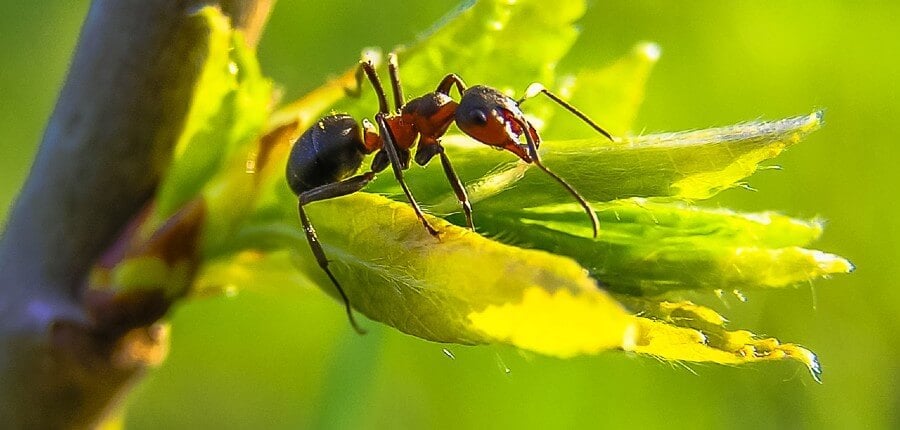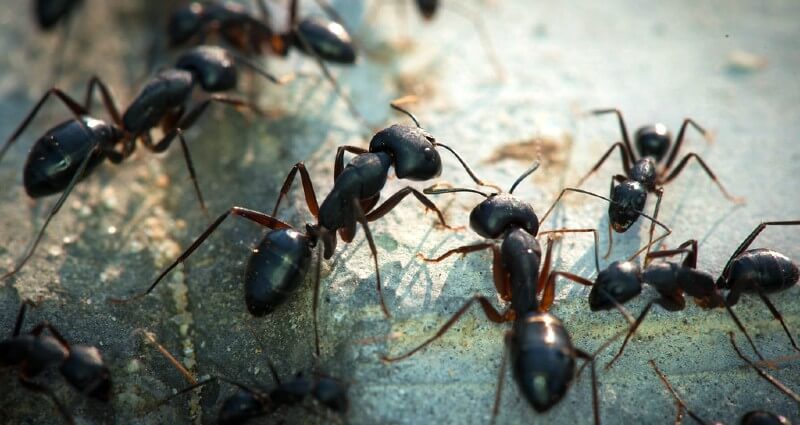Ecological Effect of Pest Control: Harmonizing Efficiency With Sustainability
The environmental effect of pest control is a crucial issue that needs a fragile balance between accomplishing efficiency in guaranteeing and handling insects sustainability of our ecological communities. From the usage of harmful chemicals that seep into our soil and water to the unintentional repercussions on non-target types, the consequences of traditional bug control techniques are far-ranging.
Unsafe Chemicals in Parasite Control
The application of unsafe chemicals in pest control poses significant ecological and wellness threats that call for cautious consideration and mitigation techniques. Pesticides, chemicals, and herbicides are typically used to eradicate bugs, however their widespread application can lead to unplanned effects. These chemicals can pollute soil, water resources, and the air, influencing not just the targeted insects but also advantageous insects, wild animals, and people.

To address these risks, integrated pest management (IPM) techniques are being advertised as an extra lasting alternative. IPM includes a combination of techniques such as organic control, environment manipulation, and the targeted use of pesticides as a last option (ant control davidson nc). By embracing an alternative technique to pest control, we can decrease the environmental and health impacts connected with damaging chemicals while properly handling pest populations
Influence On Non-Target Variety
Thinking about the unintended effects of bug control techniques, the influence on non-target species is a critical facet that requires thorough examination. While insect control actions aim to target details insects, various other organisms in the ecological community may be accidentally affected. Non-target types, including valuable bugs, birds, creatures, and even plants, can endure indirect or direct injury from pesticide applications or organic control methods.
Pesticides designed to fight a specific insect bug might harm pollinators like or all-natural killers such as ladybugs. Biological control agents, if not species-specific, can position dangers to unplanned targets, disrupting the environmental balance.
To alleviate the effect on non-target species, incorporated insect administration (IPM) techniques that emphasize a holistic method to pest control are suggested. These techniques prioritize the usage of eco-friendly methods, decreasing injury to valuable microorganisms while effectively managing pest populations. Conducting complete threat analyses and keeping an eye on the outcomes of insect control efforts are vital action in securing non-target types and promoting total environment health and wellness.
Dirt and Water Contamination
Unintended ecological repercussions of pest control techniques extend past affecting non-target types, with significant effects for soil and water contamination - termite control. Pesticides, herbicides, and chemical plant foods utilized in pest control can leach right into the soil and contaminate groundwater, posturing a danger to both earthbound and marine ecosystems.
Water contamination is one more important concern related to pest control practices. Runoff from agricultural fields treated with pesticides can bring these chemicals into neighboring water bodies, affecting aquatic organisms and water high quality. Contaminants in water sources can have far-ranging repercussions, affecting not only marine life but also human health and wellness through the usage of polluted water or marine microorganisms. To minimize dirt and water contamination from pest control activities, incorporated bug management methods that prioritize sustainability and minimize chemical inputs are vital.
Air Pollution From Chemical Usage
Exposure to airborne chemicals throughout agricultural applications positions a significant concern for air contamination control procedures. When chemicals are sprayed onto plants, they can volatilize into the air and form unpredictable organic substances (VOCs) and various other air-borne pollutants. These chemicals can add to the development of ground-level ozone, a major component of smog that can have damaging results on human health and wellness, crop productivity, and overall air quality. Additionally, chemical drift, where pesticides are lugged by the wind to unplanned areas, can cause the contamination of nearby ecosystems and water bodies.

Approaches for Sustainable Parasite Control
In the world of agricultural methods, applying sustainable parasite control techniques is extremely important for preserving environmental equilibrium and securing address plant yields. Lasting parasite control emphasizes making use of eco-friendly approaches to take care of insect populaces successfully while decreasing damage to non-target microorganisms and ecological communities. Integrated Bug Administration (IPM) is a widely adopted approach that incorporates biological, social, physical, and chemical control approaches to attain long-term pest monitoring options.
Plant turning and diversity are likewise reliable methods to interfere with pest life cycles and create much less desirable problems for bugs to thrive. Inevitably, by integrating these lasting bug control strategies, farmers can accomplish an equilibrium in between pest administration performance and environmental stewardship.
Final Thought
Finally, the environmental impact of pest control techniques need to be thoroughly taken into consideration to stabilize efficiency with sustainability. Harmful chemicals utilized in bug control can lead to soil and water contamination, air pollution, and damage non-target varieties - ant control services. It is critical to execute lasting parasite control strategies to reduce these unfavorable results on the environment and promote a healthier environment for future generations
By taking on a holistic method to pest control, we can decrease the environmental and wellness impacts associated with unsafe chemicals while efficiently taking care of pest populaces.

To alleviate the air contamination created by pesticide usage, it is vital to adopt incorporated insect administration approaches that focus on the use of non-chemical pest control approaches, such as crop turning, natural predators, and resistant crop ranges. Sustainable parasite control highlights the usage of eco friendly techniques to handle parasite populations efficiently while decreasing harm to non-target microorganisms and ecological communities. Integrated Pest Administration (IPM) is an extensively taken on approach that integrates organic, social, physical, and chemical control methods to achieve long-lasting bug monitoring services.
Comments on “Why Choose Our Termite Control Services: Professional Solutions for Effective Defense”